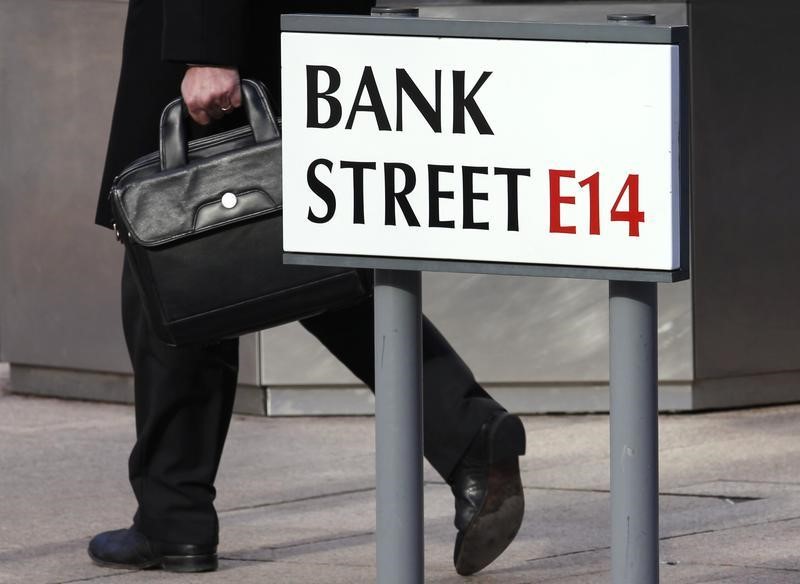By Huw Jones
LONDON (Reuters) - Britain's newest and most powerful financial regulator has pledged to introduce "meaningful" change this year to help new banks steal market share from the "Big Five" lenders who dominate in commercial and retail banking.
The Payment Systems Regulator (PSR) will be formally launched on April 1 and was specifically created to shake up the arcane financial plumbing that handles 75 trillion pounds of money transfers annually, from credit cards to shop payments and cash machines.
Britain's government, other financial regulators and lawmakers want more competition in banking to end the chokehold of Barclays (L:BARC), HSBC (L:HSBA), Lloyds (L:LLOY), RBS (L:RBS) and Santander UK (MC:SAN) who collectively provide 80 percent of UK bank accounts.
Payments have hitherto been run, as well as owned, by the industry but will now be supervised by the PSR with a core aim to make it easier and cheaper for new "challenger" banks such as TSB Banking Group (L:TSB) and OneSavings Bank (L:OSBO) to use the existing payments system owned by the big banks.
"We want to make sure that there is really meaningful change to access and governance, and that means this year," PSR Managing Director Hannah Nixon told Reuters last week.
Expectations for change are high as policymakers push for more investment, innovation and resilience in payments systems. Bank of England Chief Economist Andy Haldane has gone so far as to call for a common platform run as a public utility.
The PSR not only has the traditional regulatory power to make rules and impose fines for breaches but can also force divestments, meaning banks would have to give up ownership of payments systems.
"Yes, we have strong powers but we really do need to make sure that we have a strong evidence base before we use them," said Nixon, who joined the regulator from Ofgem, the UK gas and electricity industry watchdog.
"If the industry has bought into our approach, then we can probably move a lot further and faster with the powers as a backstop, but they are there and we will use them where we need to," she added.
Nixon outlined a twin-track approach, the first focussing on "quick fixes" in 2015 to improve access to the payment system, the second looking at whether more fundamental change is needed.
New banks can either access the payment system indirectly through one of the big banks, or directly, though both channels are opaque and bureaucratic.
"There are a set of things we think we can put in place pretty quickly and should have reasonable returns in terms of transparency and speed of access to new entrants," she said.
The PSR, which comes under the umbrella of the Financial Conduct Authority, will require banks that own the payment system to make clear upfront what level of service a new entrant can expect, she said.
The procedure for a new entrant to access the system will also be made clearer and fairer to speed things up.
The PSR will publish a statement next week on how it will regulate the sector, and over the coming 12 months it will consider possible changes to the ownership structure.
Banks will be watching whether Nixon swings behind calls to allow customers to keep their bank account number if they switch to another bank, a step the Financial Conduct Authority has said could help boost competition.
